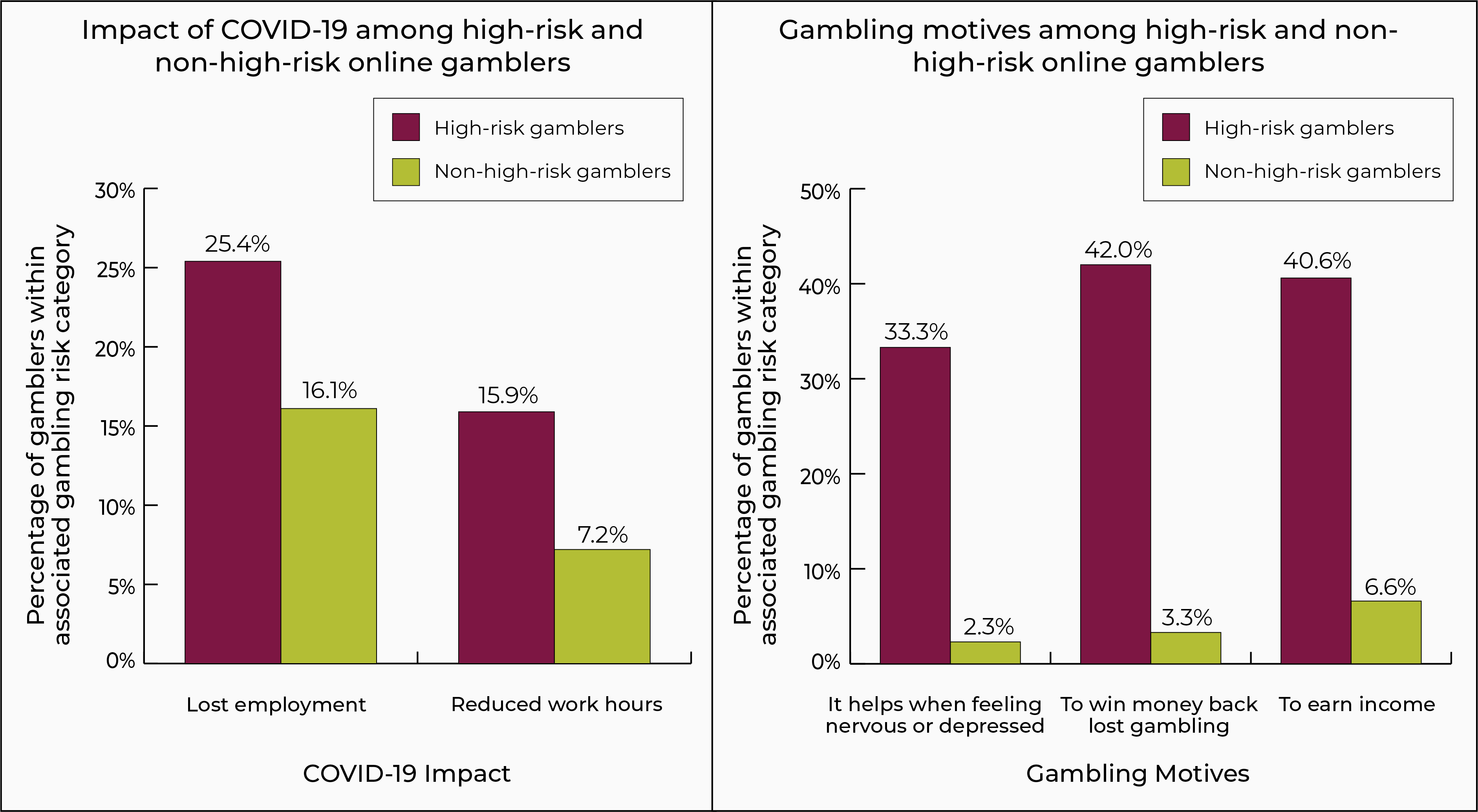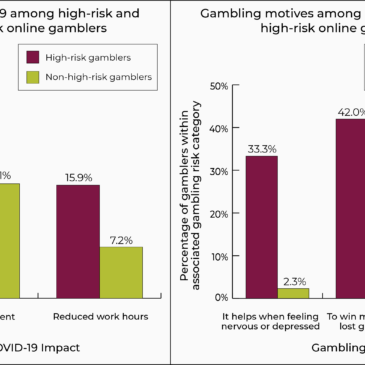Editor’s Note: Can you spare five minutes to tell us your thoughts on The BASIS? Your responses to this short questionnaire will help us improve this free resource and better meet your expectations. Thank you!
The world is still struggling to understand COVID-19. Even less is known about the pandemic’s secondary effects, including those related to mental health and addiction. The negative social and economic impacts of the COVID-19 pandemic have worsened anxiety and depression, financial distress, isolation, and substance use – raising concerns about possible implications for problem gambling and gambling-related harms. This week, we review a study by Alex Price that examined the impacts of COVID-19 on risky gambling behaviors and motivations, mental health concerns, substance use, and financial distress among online gamblers.
What was the research question?
What are the impacts of COVID-19 on risky gambling behaviors and motivations, mental health concerns, substance use, and financial distress among online gamblers?
What did the researcher do?
Two thousand and five residents of Ontario, Canada who had gambled at least once within the past 12 months completed an online survey six weeks after the COVID-19 state of emergency was declared in the province. Respondents completed measures about depression, anxiety, and substance use, including gambling online while under the influence of a substance during the emergency measures. Respondents reported their gambling behavior (i.e., typical participation, recent online participation, and whether COVID-19 influenced online gambling decisions) and motives to gamble1 and completed a gambling risk measure.2 Finally, respondents reported whether COVID-19 impacted their employment status or household income.
Price compared individuals who gambled online during the emergency measures to those who did not and looked specifically at high-risk versus non-high-risk online gamblers.
What did the researcher find?
The majority of the sample was classified as non-problem gamblers or low-risk gamblers. Half of the total sample reported their household income had been negatively affected by COVID-19. A sub-sample of 1,081 respondents gambled online during the first six weeks of the emergency measures; most of them had already been gambling online before the pandemic.
Among online gamblers, several factors increased the likelihood of having high-risk gambling status: male gender; being 25-44 years of age; reporting more severe anxiety and depression; and gambling under the influence of cannabis or alcohol. Negative financial impacts attributed to COVID-19 – lost employment or reduced work hours – were also associated with high-gambling risk. High-risk respondents were more likely than non-high-risk respondents to report gambling to earn income, to win back money lost to gambling, or for help with feeling nervous or depressed (see Figure).

Figure. The figure depicts select factors associated with high-risk gambling among online players. The graph on the left shows the impact of COVID-19 among high-risk and non-high risk online gamblers. The figure on the right shows gambling motives among high-risk and non-high-risk online gamblers. Percentages reflect the percentage of gamblers within each associated gambling risk category. Click image to enlarge.
Why do these findings matter?
This study illuminates potential secondary impacts of the COVID-19 pandemic on risky gambling behavior among online gamblers. Findings reaffirm those from previous studies regarding the relationships between depression and anxiety, substance use, and financial distress – factors associated with social and economic implications of the pandemic – to gambling risk. Furthermore, this study links certain gambling motives associated with mental health and financial distress (i.e., gambling to earn income, to win back money lost to gambling, or for help with feeling nervous or depressed) to problematic gambling. Harm-reduction and prevention efforts related to online gambling, risky gambling behavior, and problematic internet use during the COVID-19 pandemic, should address these factors holistically, instead of independently.
Every study has limitations. What are the limitations of this study?
Survey responses were self-reported, which may introduce bias into the results. The study was a cross-sectional study, meaning that it cannot determine cause and effect relationships between the risk associations.
For more information:
Do you think you or someone you know has a gambling problem? Visit the National Council on Problem Gambling for screening tools and resources. For additional resources, including gambling and self-help tools, please feel free to visit The BASIS Addiction Resources page.
— Kira Landauer, MPH
What do you think? Please use the comment link below to provide feedback on this article.
________________
[1] Select gambling motives emphasize gambling with co-occurring mental health concerns (i.e., gambling because it helps when feeling nervous or depressed and gambling to win back money lost gambling) or gambling to escape from financial stress (i.e., to earn income).
[2] Price used the Problem Gambling Severity Index to classify respondents according to gambling risk. Among the full sample, 71.7% were classified as non-problem gamblers, 14.2% as low-risk gamblers, 6.5% as moderate-risk gamblers, and 7.6% as high-risk gamblers.




